Unique Tips About How To Treat Hyperparathyroidism
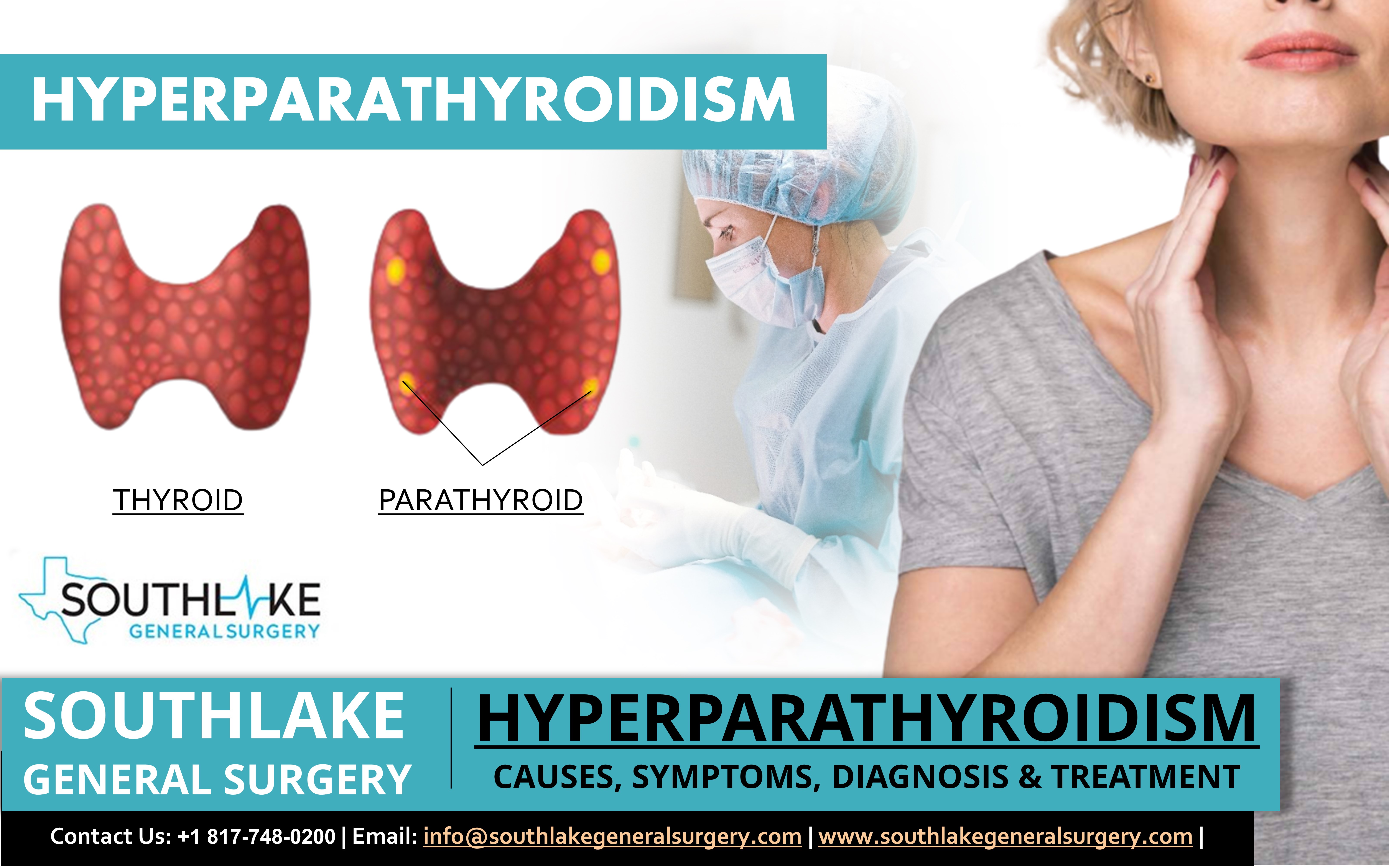
Treatment complications outlook takeaway hyperparathyroidism happens when the parathyroid glands make too much parathyroid hormone.
How to treat hyperparathyroidism. This can cause the levels of calcium in the blood to rise, which, without. Surgery is most often used to treat primary. For women who have gone through menopause and have signs of osteoporosis,.
However, this conventional treatment approach does not always alleviate patients' symptoms. Parathyroidectomy is the definitive cure for. Treatment hyperparathyroidism occurs when overactive parathyroid glands cause levels of parathyroid hormone (pth) in the blood to become elevated.
Over time, increased parathyroid hormone levels occur as the body fights to keep the calcium level up in the standard range. Constipation frequent urination increased thirst joint pain kidney pain (due to the presence of kidney stones) lethargy and fatigue loss of appetite muscle weakness other serious symptoms may include: Outlook summary hyperparathyroidism is a condition wherein the parathyroid glands create too much parathyroid hormone.
This can affect your calcium levels and cause other health. Lithium, a drug used to treat bipolar disorder, can affect calcium levels. That can lead to a number of problems, including weak bones, kidney stones, fatigue, memory problems, muscle and bone pain, excessive urination and stomach pain, among others.
Severe, ongoing vitamin d or calcium deficiencies can trigger hyperparathyroidism. Hyperparathyroidism can cause you to have too much calcium in your blood. When the parathyroid gland is overactive ( hyperparathyroidism ), excess pth is produced, leading to a rise in blood calcium levels.
Secondary hyperparathyroidism occurs due to another disease that first causes low calcium levels in the body. Introduction primary hyperparathyroidism (phpt) is often recognized as a result of biochemical screening or during evaluation for decreased bone mass. Primary hyperparathyroidism (phpt) is a common endocrine disorder with an estimated prevalence of 0.86% in the united states [1,2] and represents the leading cause of hypercalcemia in the outpatient setting.
What are the symptoms of hyperparathyroidism? Parathyroidectomy for nontraditional features of primary hyperparathyroidism. This raises the blood calcium level back to normal by pulling calcium out of bone and reducing calcium excretion by the kidneys.
It results from the abnormal regulation and excessive release of parathyroid hormone (pth) from one or more of the parathyroid. Most patients with hyperparathyroidism are postmenopausal women. When the blood calcium level drops, the normal response is for the parathyroid glands to release pth;
An elevated pth level then leads to a high level of calcium in the blood (hypercalcemia). Surgery is the most common treatment for primary hyperparathyroidism. Surgery to remove the overactive parathyroid gland or glands is the only sure way to cure primary hyperparathyroidism.
Hyperparathyroidism often affects older adults, especially those in their 50s, 60s, and beyond. Constipation tummy pain loss of concentration mild confusion symptoms of hypercalcaemia if hyperparathyroidism is not treated, it can lead to high blood calcium levels (hypercalcaemia), which may cause: Medications to treat hyperparathyroidism include the following:




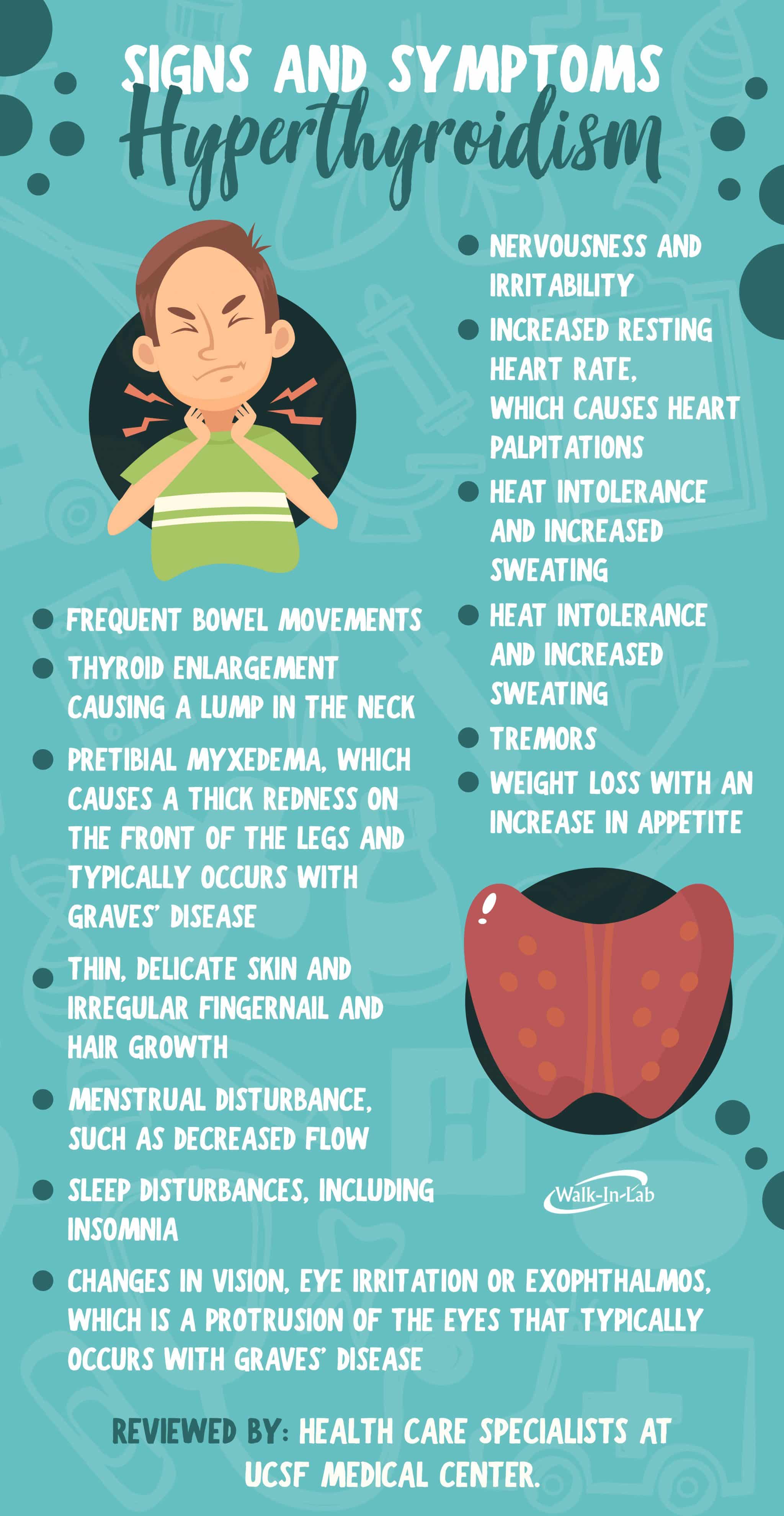
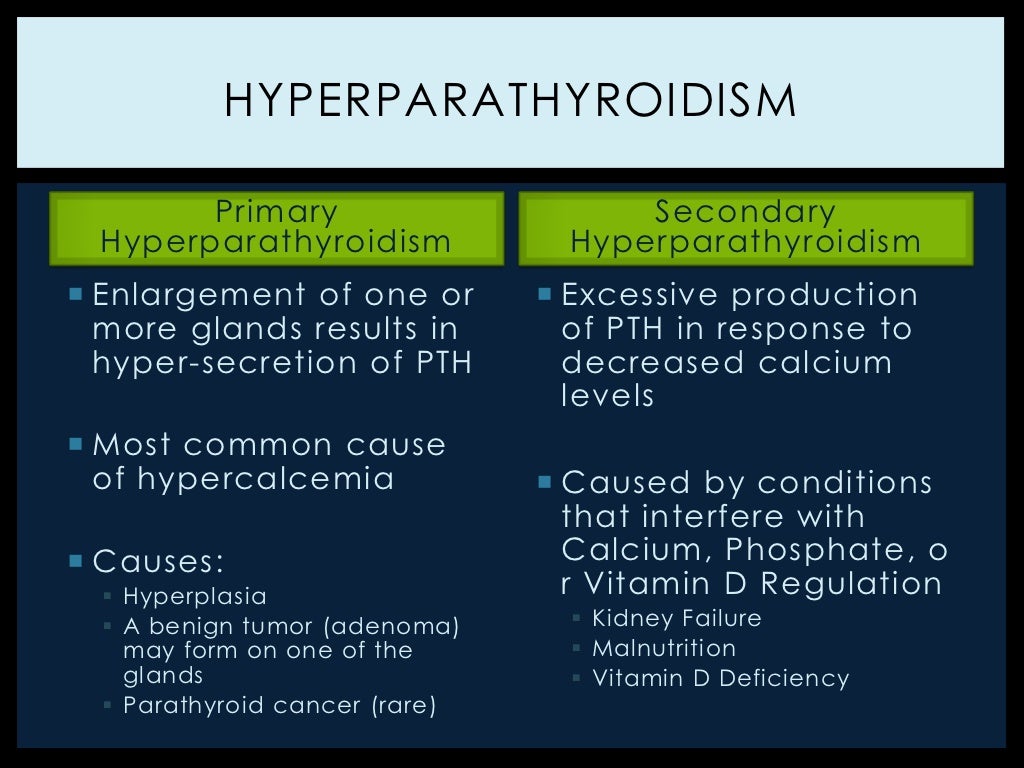


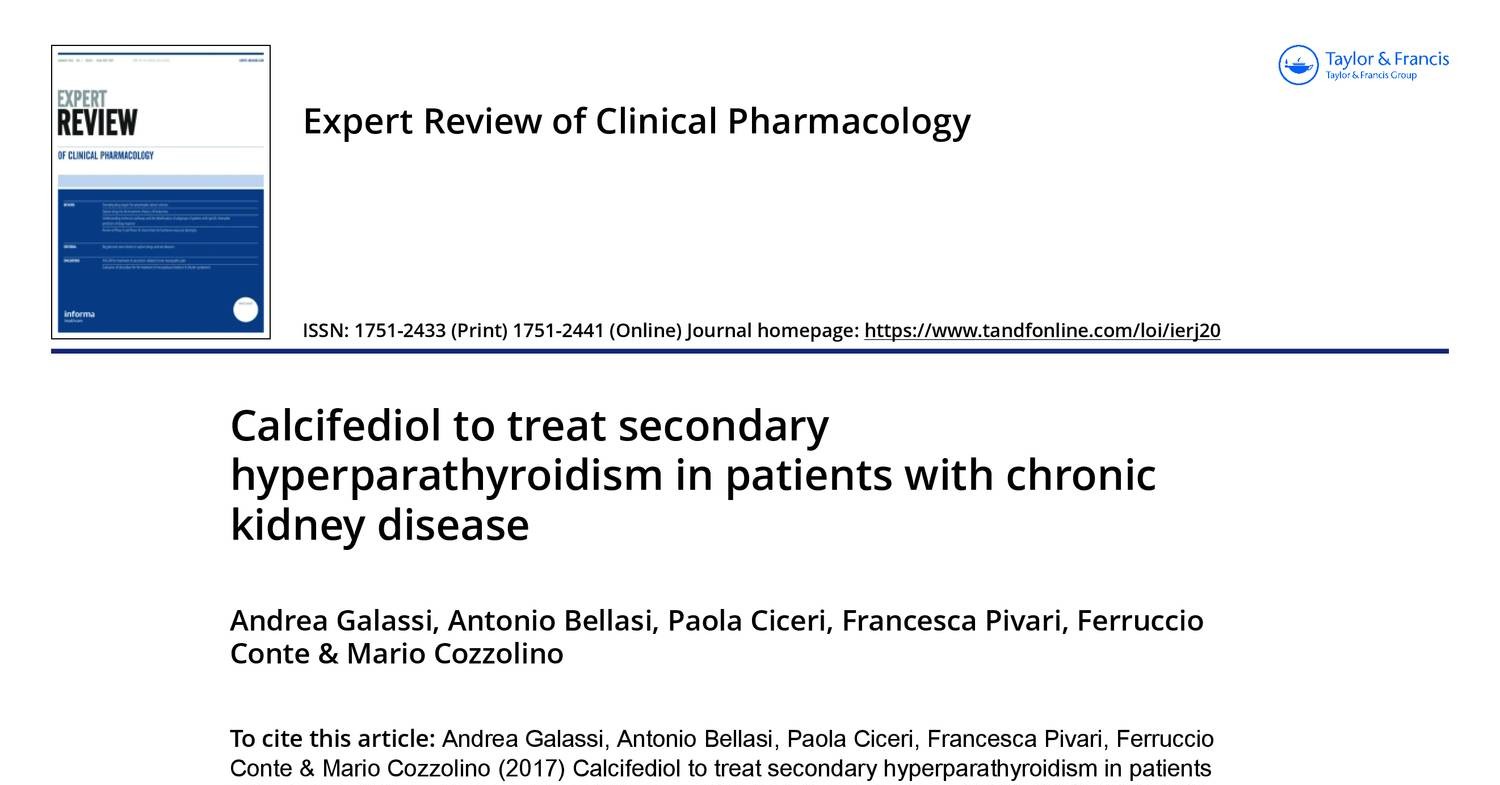
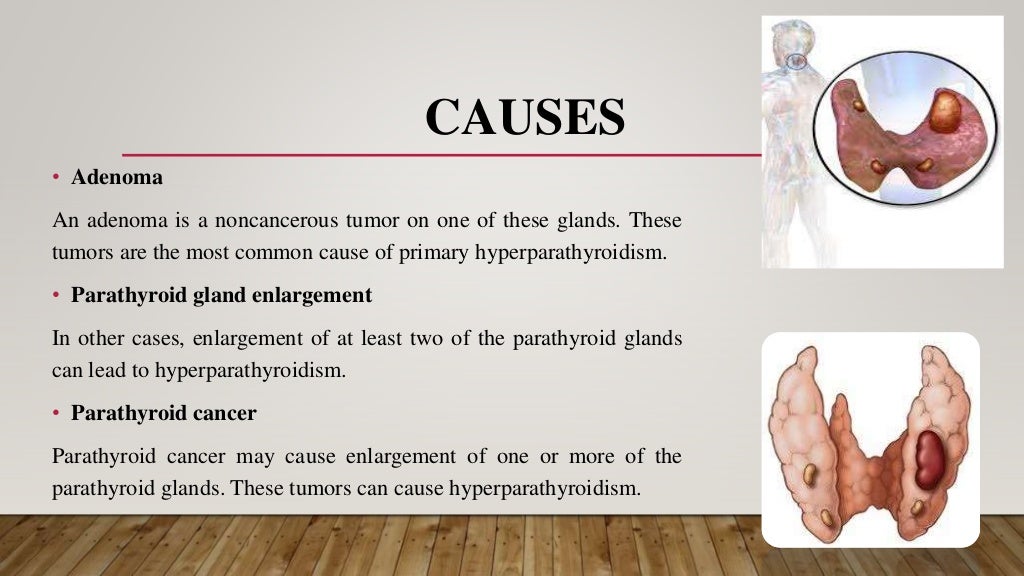
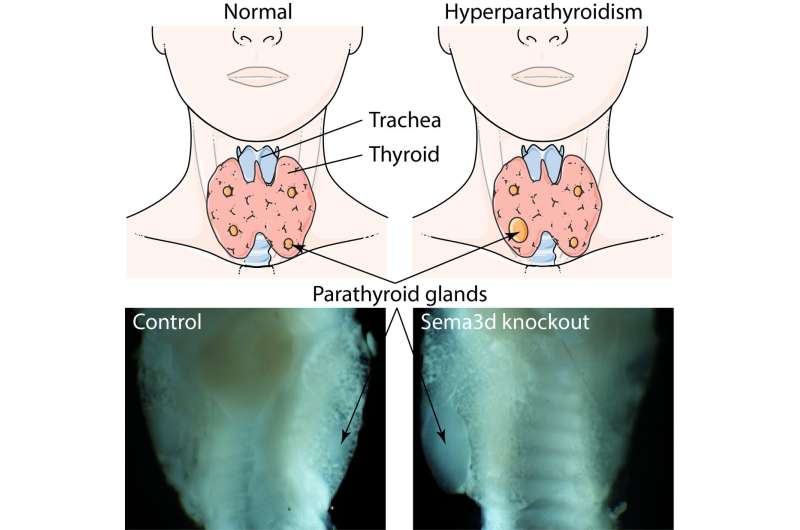
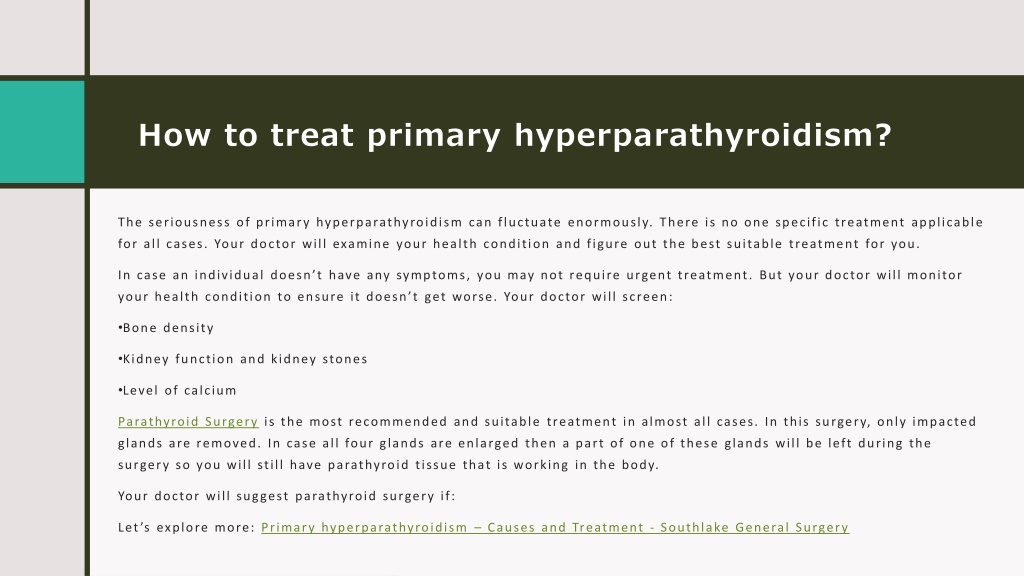
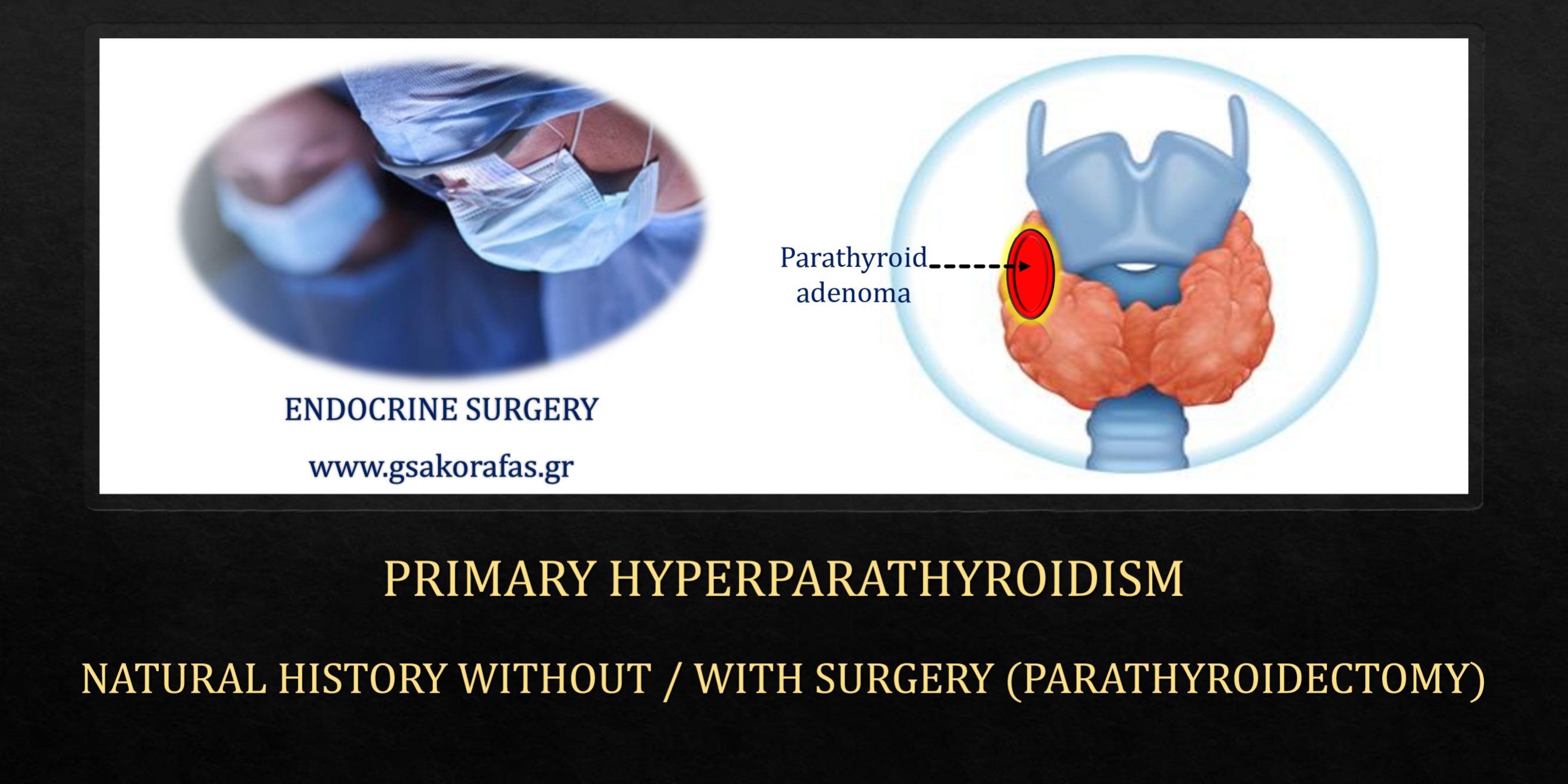
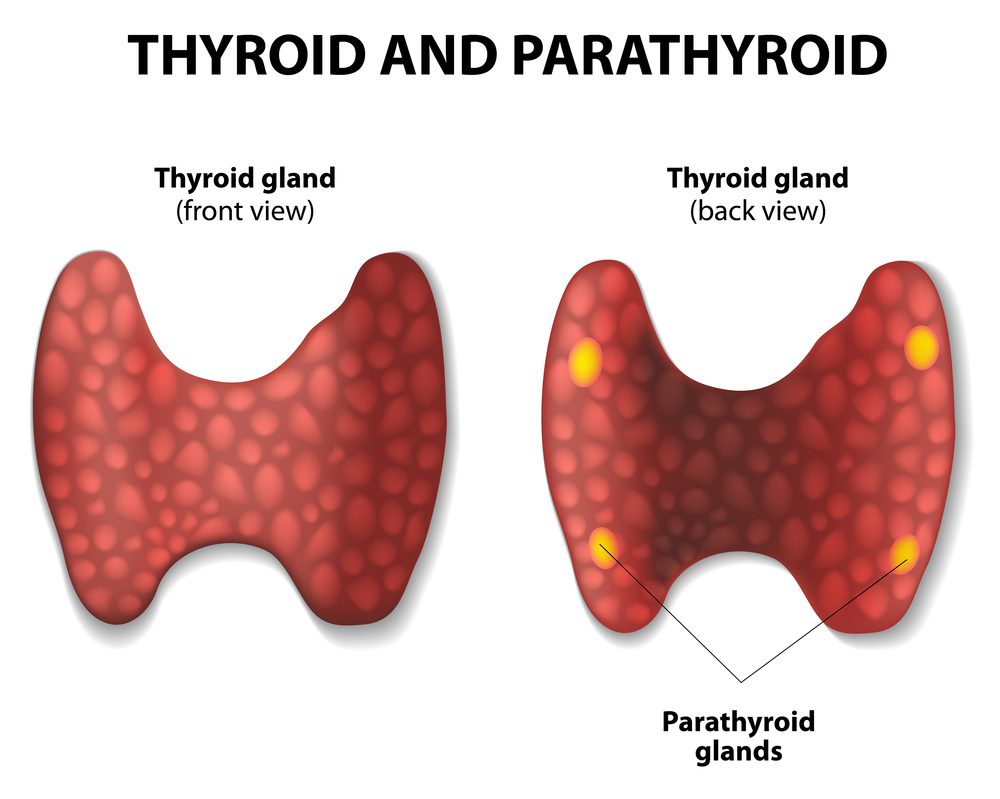

:max_bytes(150000):strip_icc()/3233225_color-5c01779fc9e77c00013b198d.png)

